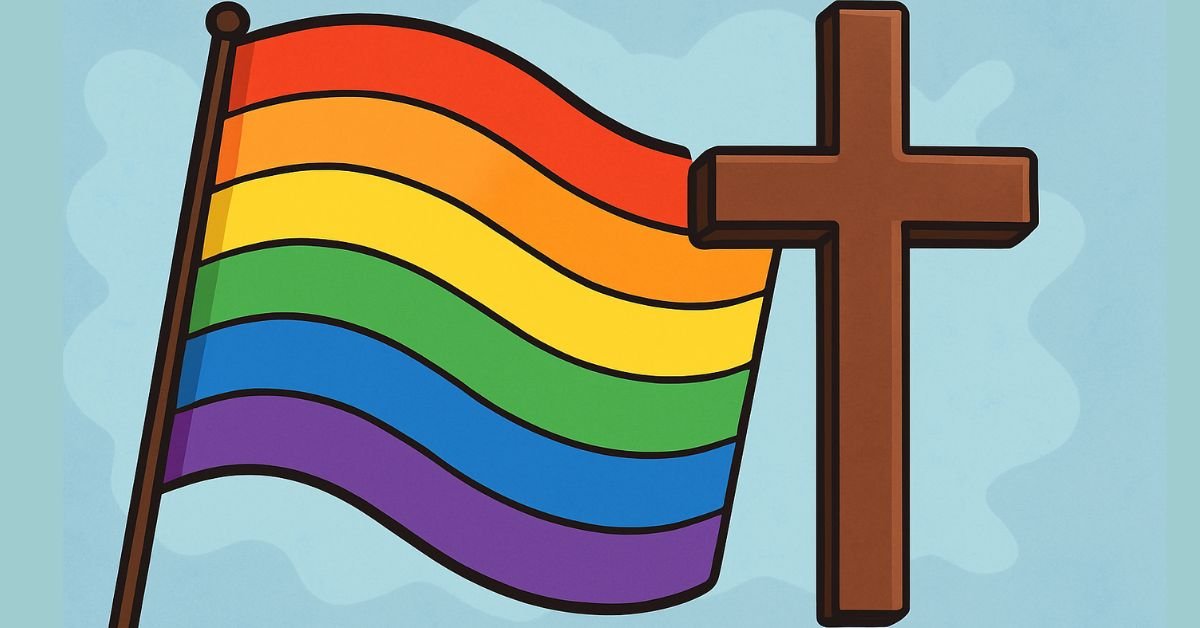Can You Be Gay and Christian? Exploring Faith and Sexuality
The intersection of faith and sexual identity is a deeply personal and complex journey, especially for those who identify as LGBTQ+ within a religious context. For many, the question of whether it is possible to be both gay and Christian may feel like a contradiction, particularly when confronted with varying interpretations of scripture. However, the answer is nuanced and deeply individual, with many LGBTQ+ individuals finding ways to embrace both their sexual identity and their Christian faith.
Understanding the Conflict
Christianity, like many other major religions, has been historically conservative in its views on sexuality. Traditional interpretations of certain biblical passages have led many to believe that same-sex relationships are not compatible with Christian teachings. For some individuals, these interpretations have led to feelings of conflict, shame, and even exclusion from their faith communities.
However, this perspective does not represent the full spectrum of Christian belief, nor does it reflect the experiences of all LGBTQ+ Christians. The question is not necessarily about whether it’s possible to be both gay and Christian, but about how one interprets religious teachings and reconciles them with their identity.
The Affirming Christian Perspective
There are numerous Christian denominations, churches, and communities that have become more inclusive and affirming of LGBTQ+ individuals. These groups view the Bible through a lens of love, compassion, and acceptance, arguing that the core teachings of Christianity such as love for one another extend to all people, regardless of their sexual orientation.
Affirming Christians believe that sexual orientation is not a sin, and that God’s love encompasses and accepts all people, regardless of their sexual identity. For many, this means that being gay and Christian are not mutually exclusive. These individuals often interpret the Bible in a way that prioritizes love and inclusivity over rigid doctrinal positions.
Many LGBTQ+ individuals have found welcoming Christian communities where they can fully embrace their identity while continuing to practice their faith. These churches often focus on fostering an environment of acceptance, where LGBTQ+ Christians can thrive spiritually without having to hide or suppress their true selves.
Reconciling Faith and Sexuality
For many LGBTQ+ Christians, reconciling their faith with their sexuality is not an easy process. Some may spend years grappling with guilt, shame, or the fear of rejection from their faith community. However, over time, many individuals find that they can integrate their faith and sexual identity in a way that feels authentic.
For some, this reconciliation involves finding a reinterpretation of scripture that aligns with their identity. Others may engage in prayer, spiritual reflection, or seek counsel from LGBTQ+ affirming clergy or theologians who offer a perspective that encourages love, acceptance, and the inclusion of all people, regardless of sexual orientation.
It is important to note that each person’s journey is unique. Some individuals may choose to distance themselves from organized religion entirely, while others find new faith communities where they can embrace both their sexuality and their spirituality without conflict. The journey is deeply personal, and it often involves reconciling what it means to be both fully oneself and a part of a larger spiritual community.
The Role of Church and Religious Community
The role of the church and religious community cannot be overstated in the lives of many Christians, whether LGBTQ+ or otherwise. Churches offer a sense of belonging, spiritual guidance, and community that can be essential to one’s faith journey. Unfortunately, some LGBTQ+ individuals experience exclusion or rejection from their faith communities, which can be emotionally and spiritually painful.
However, it’s important to recognize that not all churches or religious groups hold the same beliefs about sexuality. While some denominations may maintain conservative views, others have shifted towards a more inclusive approach, recognizing the dignity, worth, and contributions of LGBTQ+ individuals within the body of Christ. These affirming spaces provide a place where LGBTQ+ Christians can practice their faith freely, openly, and without fear of discrimination.
Finding Support
For LGBTQ+ individuals who are navigating the intersection of faith and sexuality, finding a supportive community can make all the difference. Many affirming Christian organizations, LGBTQ+ advocacy groups, and online communities provide resources, counseling, and spaces for people to explore their faith without fear of judgment or exclusion.
It’s also crucial for LGBTQ+ Christians to seek out spaces that offer spiritual guidance and counseling from those who understand the unique challenges they face. Many affirming churches and religious leaders are willing to walk alongside individuals on their faith journeys, helping them find peace and acceptance as they integrate their identity with their beliefs.
Conclusion
The question of whether it is possible to be both gay and Christian is one that each individual must answer for themselves. While traditional interpretations of scripture may present challenges, there is a growing movement within Christianity that embraces LGBTQ+ individuals as full and equal members of the faith community.
Ultimately, being gay and Christian is not about choosing one identity over the other, but about finding a way to reconcile both in a manner that feels true to oneself. Whether through affirming communities, personal reflection, or seeking guidance from supportive religious leaders, many LGBTQ+ individuals find peace and spiritual fulfillment by embracing both their sexuality and their faith.
For those on this journey, it is important to remember that God’s love is inclusive and unconditional, and that every person, regardless of their sexual orientation, deserves to experience the fullness of that love within their faith.





